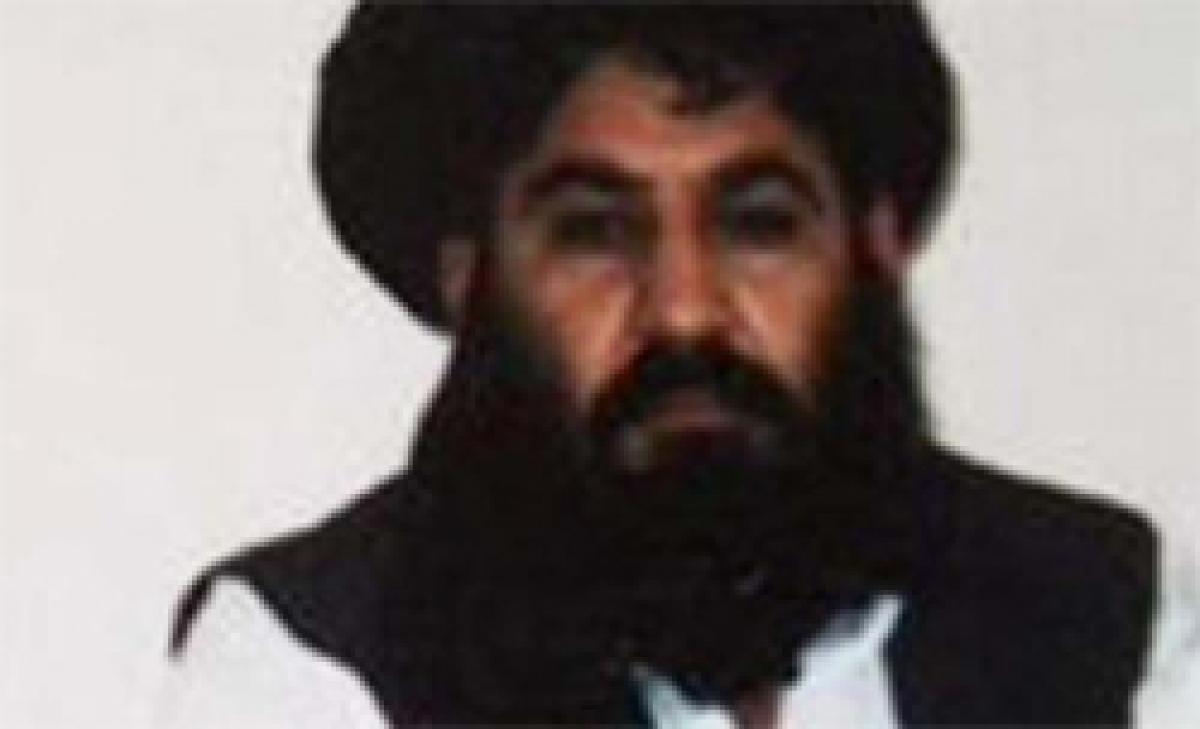Live
- Alliance University Awarded A+ accreditation by NAAC
- OU extends application deadline for MBA evening course
- 4 lakh challans issued for improper parking
- AP Govt. Employs Drones in Fight Against Cannabis Cultivation
- Metro to sell Trade Fair tickets at 55 stations
- Revise income limit for EWS admissions in pvt schools to `5 lakh: LG
- MCD mayoral election today: Satya reappointed as presiding officer
- Don’t fall in trap of drug addiction, youths cautioned
- Air Pollution Crisis: LG approves redeployment of Civil Defence volunteers
- Delhi police orders checking of hotels to nab criminals
Just In

x
Highlights
The Afghan Taliban published a biography of their new leader Monday as hundreds of insurgents met to resolve a dispute over his appointment following the death of figurehead Mullah Mohammad Omar.
The Afghan Taliban published a biography of their new leader Monday as hundreds of insurgents met to resolve a dispute over his appointment following the death of figurehead Mullah Mohammad Omar.
The 5,000-word biography, emailed to journalists in five languages, offers the story of Mullah Akhtar Mansoor, who now leads the Taliban in its fight against the Afghan government. It describes Mansoor, born in 1968, as a tireless holy warrior, good listener, neat dresser and ardent protector of civilians who was appointed as the insurgents' leader "in full compliance with Islamic Shariah law."
Mansoor never nominated himself for leadership, rather he was selected as the only candidate by members of the leading council of the Islamic Emirate and religious scholars, the biography says, using the name of the former Taliban government.
Mansoor was named as the Taliban's leader last month after the Afghan government revealed that Mullah Omar died in 2013. But family of Mullah Omar objected, saying the vote to elect Mansoor was not representative of the group, sparking an internal power struggle.
Hundreds of Taliban fighters, including battlefield commanders, are meeting in the Pakistani city of Quetta in an effort to resolve the leadership dispute. The release of the biography appears to be an attempt by Mansoor's supporters to shore up his position and consolidate his power ahead of the meeting's delegates making a final decision about who leads them. That decision could be made within days.
"Mansour is trying to show that he is the leader and no one can reach him on that level," said Mohammad Ismail Qasimyar, the foreign relations adviser to the Afghan government's High Peace Council, which is charged with ending the war.
Analysts and others, like Qasimyar, believe Mansoor gained power in the Taliban in part because of his connections to Pakistan's powerful Inter-Services Intelligence agency. The ISI long has had ties to Afghan militants.
With the ISI's support, Mansoor "is the only one right now that has more support than anyone else for the leadership," Qasimyar said. "With Pakistan's support, it doesn't matter who supports him and who doesn't."
However, Habibullah Fouzi, a diplomat under the Taliban and now also on the peace council, said there could be more dissention coming in the Taliban. He said many rank-and-file members supported Mullah Omar's brother, Manan, and son, Yaqub, who have challenged Mansoor's appointment.
"It is clear that Mullah Mansoor has been imposed into this position by others," Fouzi said.
The Taliban leadership challenge comes after fledging peace talks between it and the Afghan government were called off following Mullah Omar's death becoming public. Despite fierce fighting and high casualties on both sides this year, the Taliban have failed to make significant battlefield progress.
Mansoor's biography also offers for the first time the date of Mullah Omar's death as April 23, 2013. The Taliban said it kept his death a secret as "2013 was considered the last year of resistance and struggle" before the foreign military drawdown.

Next Story
More Stories
ADVERTISEMENT
© 2024 Hyderabad Media House Limited/The Hans India. All rights reserved. Powered by hocalwire.com







